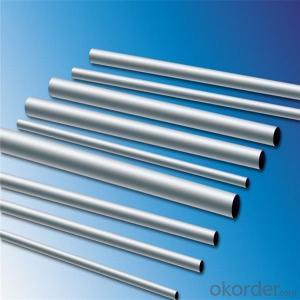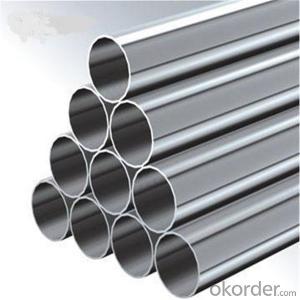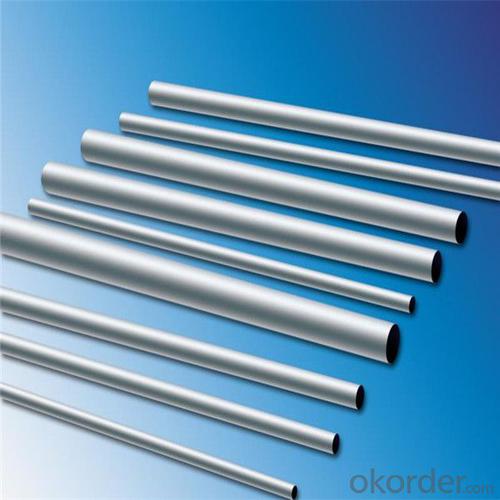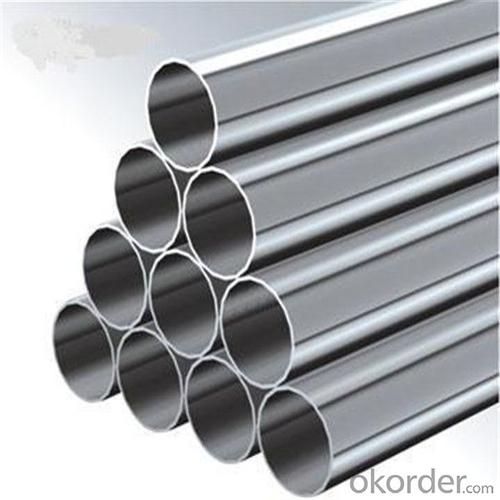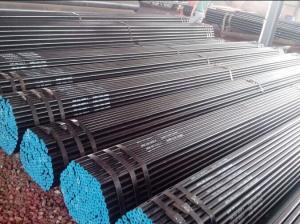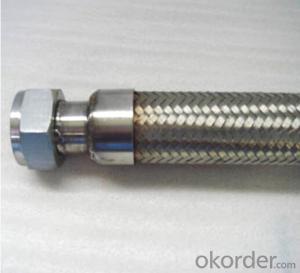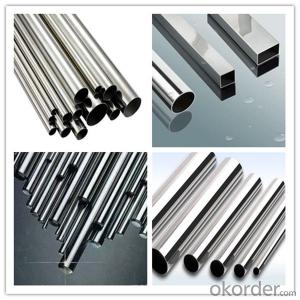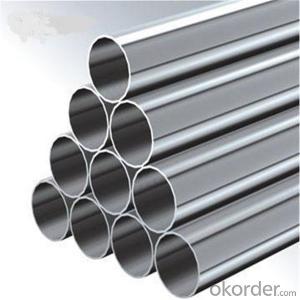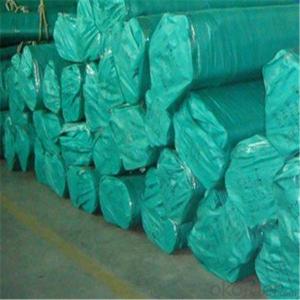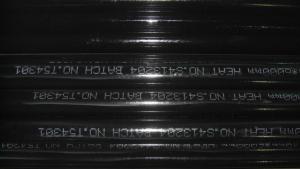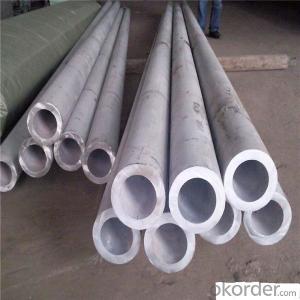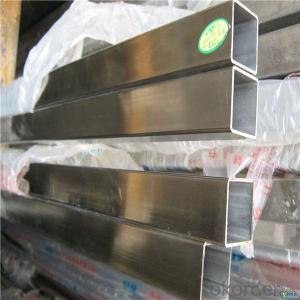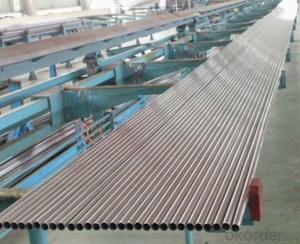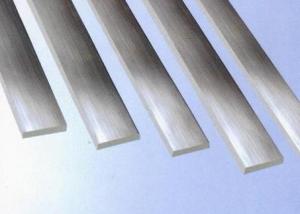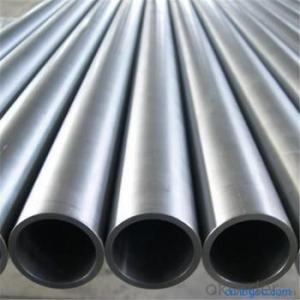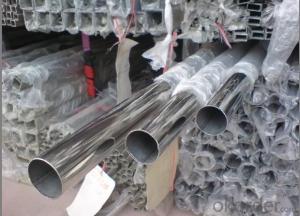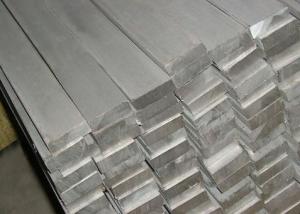904l Stainless Steel Seamless Pipe in Wuxi ,China
- Loading Port:
- Shanghai
- Payment Terms:
- TT OR LC
- Min Order Qty:
- 3 m.t.
- Supply Capability:
- 25000 m.t./month
OKorder Service Pledge
OKorder Financial Service
You Might Also Like
Specification
904L STAINESS STEEL
UNSN08904
DIN W.NR.1.4539
(Introduction of Commodity)
Similar Grade
UNS | ASTM A240 | Trademark |
UNS N08904 | SUS890L | 904L |
(Chemical Component)
Alloy | % | Ni | Cr | Cu | Mo | C | Mn | Fe | Si | P | S |
904L | Min | 23 | 19 | 1 | 4 | Balance | |||||
Max | 28 | 23 | 2 | 5.0 | 2 | 1 | Balance | 0.045 | 0.035 |
(Physical Properties)
Density | Fusion Point |
8.0g/cm3 | 1300-1390°C |
Mechanical Property
Alloy and state | Tensile Strength | Yield Strength | Elongation |
RM N/MM2 | RP0.2N/MM2 | A5% | |
904L | 490 | 216 | 35 |
904L is a fully austenitic structure, and the general content of high molybdenum austenitic stainless steel, 904L is not sensitive to the precipitation of the ferrite and the alpha phase.
Application
1. petroleum, petrochemical equipment, such as petrochemical equipment in the reactor, etc..
2. Storage and transportation equipment, such as heat exchangers, etc..
3. Power plant flue gas desulfurization device, the main use of the site are: absorption tower body, flue, file door, interior, spray system, etc..
4. Organic acid treatment system of scrubber and fan.
5. Seawater treatment plant, sea water heat exchanger, paper industry equipment, sulfuric acid, nitric acid equipment, acid, pharmaceutical industry and other chemical equipment, pressure vessels, food equipment.
6 .Pharmaceutical factory: centrifuge, reactor, etc..
7. Plant food: cans of soy sauce, cooking wine, salt, and dressing equipment.
8. Most suitable for dilute sulfuric acid and strong corrosive medium
Surface Finish :
Surface finish | Characteristics and application |
No.2B | The surface brightness and flatness of no2B is better than no2D. then through a special surface treatment to improve its mechanical properties, No2B could nearly satisfy comprehensive uses. |
No.3 | Polished with abrasive belt of git#100-#200, have better brightness with discontinuous coarse stria, used as inner and external ornaments for building, electrical appliances and kitchen utensils etc. |
No.4 | Polished with abrasive belt of grit #150-#180,have better brightness with discontinuous coarse stria, but thinner than No3, are used as bathtub buildings inner and external ornaments electrical appliances kitchen utensils and food processing equipment etc. |
HL | Polished with abrasive belt of grit #150-#320 on the NO.4 finish and has continuous streaks, mainly used as buildings ornaments elevators, door of building, frontal plate etc. |
BA | Cold rolled, bright annealed and skin-passed, the product have excellent brightness and good reflexivity like mirror, kitchen apparatus, ornament etc. |
8K | The product have excellent brightness and prefer reflexivity can to be the mirror. |
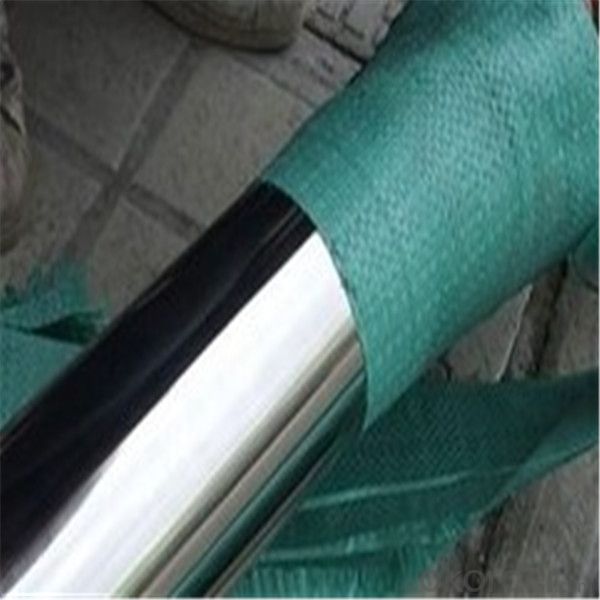
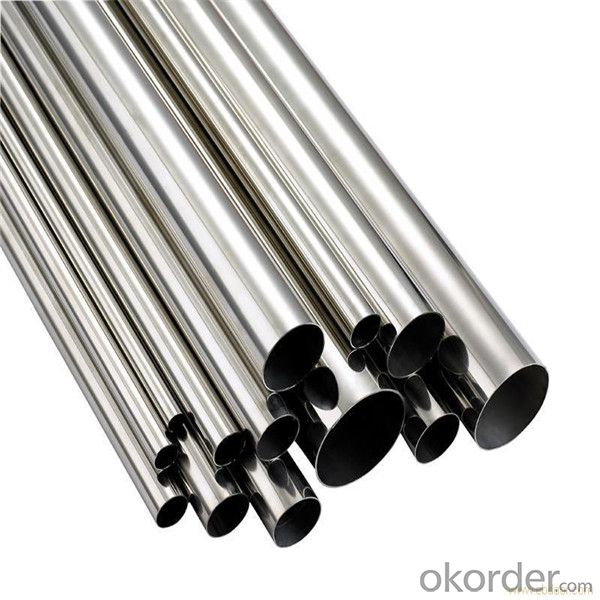
- Q: How do stainless steel pipes compare to polypropylene pipes?
- Stainless steel pipes and polypropylene pipes are two popular choices for various plumbing and industrial applications, and they have distinct characteristics that set them apart. Firstly, stainless steel pipes are known for their exceptional durability and strength. They can withstand high pressure and temperature conditions, making them suitable for applications that require robustness and reliability. On the other hand, polypropylene pipes are not as strong as stainless steel and may not be suitable for high-pressure environments. Secondly, stainless steel pipes have excellent corrosion resistance properties. They are highly resistant to rust, corrosion, and chemical reactions, making them ideal for plumbing systems that handle corrosive fluids or gases. Polypropylene pipes, while resistant to many chemicals, may not have the same level of corrosion resistance as stainless steel pipes. Thirdly, stainless steel pipes offer excellent hygiene and cleanliness. They have a smooth interior surface that discourages the growth of bacteria and biofilm, making them suitable for applications in the food and beverage industry or medical facilities. Polypropylene pipes, while relatively resistant to bacterial growth, may not provide the same level of cleanliness as stainless steel. Additionally, stainless steel pipes are known for their longevity and low maintenance requirements. They have a longer lifespan compared to polypropylene pipes, which may need to be replaced more frequently. Stainless steel pipes also require less maintenance and are less prone to leaks or cracks. However, it is worth noting that polypropylene pipes have their advantages too. They are lightweight, easy to install, and relatively cost-effective compared to stainless steel pipes. Polypropylene also has excellent thermal insulation properties, which can be beneficial in certain applications. Ultimately, the choice between stainless steel pipes and polypropylene pipes depends on the specific requirements of the project. Factors such as pressure, temperature, corrosion resistance, cleanliness, and budget should be considered to determine the most suitable option. Consulting with a professional plumber or engineer can help in making an informed decision.
- Q: Can stainless steel pipes be powder coated?
- Yes, stainless steel pipes can be powder coated. Powder coating is a durable and protective finish that can be applied to stainless steel pipes to enhance their appearance and provide additional corrosion resistance.
- Q: Can stainless steel pipes be used for wastewater pumping stations?
- Indeed, stainless steel pipes are suitable for use in wastewater pumping stations. Renowned for their durability, resistance to corrosion, and lengthy lifespan, stainless steel pipes prove to be an exceptional selection for wastewater applications. Given that wastewater pumping stations frequently handle corrosive and abrasive fluids, stainless steel pipes possess the ability to endure these harsh circumstances without deteriorating or causing contamination. Furthermore, stainless steel pipes are effortlessly cleaned and maintained, a critical feature for wastewater systems. In summary, stainless steel pipes represent a dependable and fitting choice for wastewater pumping stations.
- Q: 304 stainless steel, welded to seamless difference in what place?
- The grain size of the metal is related to the temperature of heat treatment and the time of keeping the same temperature. The welded stainless steel pipe and seamless stainless steel tube as the annealed grain size. If the minimum tube cold treatment, the grain size of the weld metal is smaller than the grain size, welding or grain size is the same.
- Q: Can stainless steel pipes be used for brewery applications?
- Yes, stainless steel pipes can be used for brewery applications. Stainless steel is highly resistant to corrosion and can withstand the harsh conditions of a brewery environment, such as exposure to moisture and chemicals. It is also easy to clean and maintain, making it a suitable choice for transporting liquids in a brewery setting.
- Q: Under what circumstances can the stainless steel pipe be welded by argon arc, and under what conditions can the arc welding be used?
- From the economic point of view and flexibility, arc welding is good, from the efficiency aspect, of course, argon arc welding is higher, the effect is better, and also more mechanized. If it is small batch, it will choose arc welding.
- Q: Are stainless steel pipes suitable for wastewater treatment ponds?
- Yes, stainless steel pipes are suitable for wastewater treatment ponds. Stainless steel is highly resistant to corrosion, making it an excellent choice for handling wastewater, which can be highly corrosive. The durability and strength of stainless steel pipes allow them to withstand the harsh conditions and chemicals found in wastewater treatment ponds. Additionally, stainless steel pipes are easy to clean and maintain, ensuring efficient and effective wastewater treatment processes. Overall, stainless steel pipes are a reliable and long-lasting option for wastewater treatment ponds.
- Q: Are stainless steel pipes resistant to chlorine corrosion?
- Yes, stainless steel pipes are generally resistant to chlorine corrosion. Stainless steel is known for its excellent corrosion resistance, and it is particularly resistant to the corrosive effects of chlorine and chlorinated water. This is due to the high levels of chromium present in stainless steel, which forms a protective oxide layer on the surface of the metal. This oxide layer acts as a barrier between the stainless steel and the corrosive elements, preventing the chlorine from corroding the pipe. However, it is worth noting that the resistance of stainless steel pipes to chlorine corrosion can vary depending on the specific grade of stainless steel used. Therefore, it is important to select the appropriate grade of stainless steel that is specifically designed for resistance to chlorine corrosion when using stainless steel pipes in applications involving chlorinated water or chlorine-containing environments.
- Q: What is the chemical composition of stainless steel pipes?
- Stainless steel pipes are primarily composed of iron, with a minimum of 10.5% chromium content. Other elements such as nickel, manganese, carbon, and small amounts of other elements are also present in varying quantities depending on the specific grade and intended application of the stainless steel.
- Q: Can stainless steel pipes be insulated with silicone?
- Yes, stainless steel pipes can be insulated with silicone. Silicone insulation is commonly used for its high temperature resistance and excellent thermal conductivity, making it suitable for insulating stainless steel pipes in various industrial and commercial applications. Silicone insulation helps prevent heat loss or gain, enhances energy efficiency, and provides protection against corrosion and condensation.
Send your message to us
904l Stainless Steel Seamless Pipe in Wuxi ,China
- Loading Port:
- Shanghai
- Payment Terms:
- TT OR LC
- Min Order Qty:
- 3 m.t.
- Supply Capability:
- 25000 m.t./month
OKorder Service Pledge
OKorder Financial Service
Similar products
Hot products
Hot Searches
Related keywords
